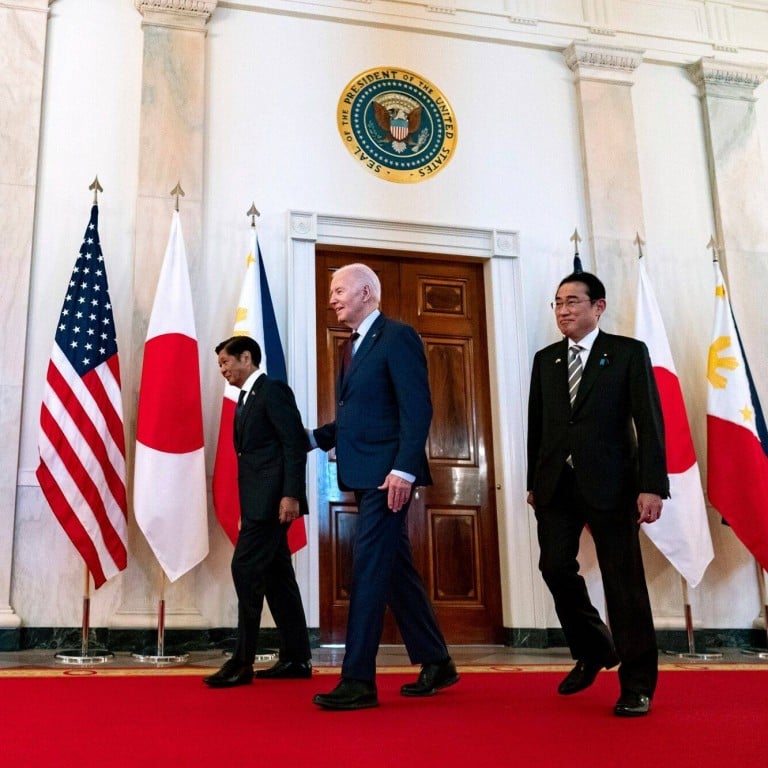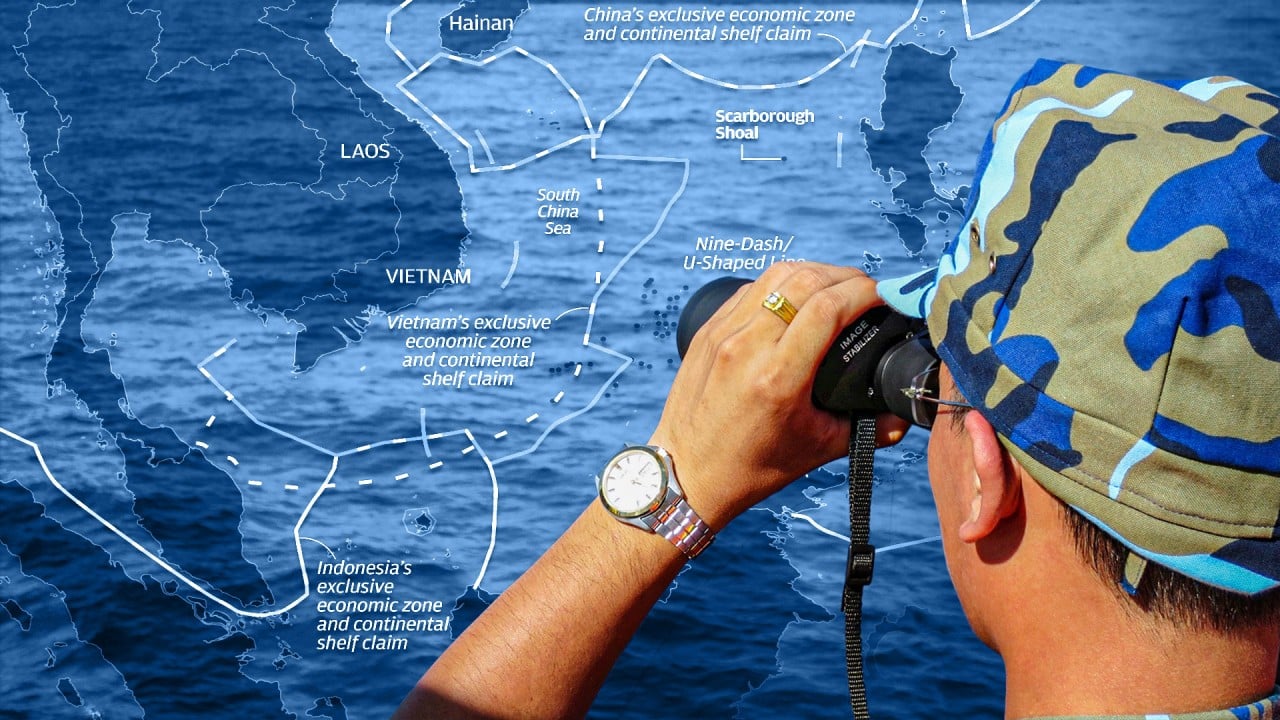
South China Sea: Marcos says Philippine deal with US, Japan to change dynamic in disputed waters, won’t affect Beijing trade
- The Philippine president said the cooperation agreement signed in Washington will change the dynamic in Asean and around the contested waterway
- He also said the summit was ‘not against any country’ and the business deals sealed at the meeting would not affect China’s investments in Manila
The three leaders expressed “serious concerns” about China’s “dangerous and aggressive behaviour” in the South China Sea, a conduit for more than US$3 trillion of annual ship-borne commerce with various maritime disputes among China and other countries.
Still, Marcos said the summit was “not against any country” but had focused on deepening economic and security relations among Manila, Washington and Tokyo.
Duterte claims China threatened war over South China Sea if status quo not kept
Marcos also said the business deals that the Philippines secured at the summit will not affect China’s investments in the country.
“This [trilateral agreement] is separate from any proposed or potential Chinese investments in the Philippines. How do I see it, how will it affect? I don’t see that it will affect, one way or the other,” he said.
China claims almost the entire South China Sea despite a 2016 ruling by the Permanent Court of Arbitration found Beijing’s sweeping claims had no legal basis.
Beijing on Thursday summoned Manila’s ambassador to the country and a Japanese embassy official to oppose what its foreign ministry described as “negative comments” against China.
The deepening China-Philippines row coincides with an increase in security engagements with the US under Marcos, including expansion of US access to Philippine bases, as well as with Japan, which is expected to sign a reciprocal troop pact with Manila.
Biden has asked Congress for an additional US$128 million for infrastructure projects at the Philippine bases.
Marcos also expressed confidence that around US$100 billion in possible investment deals over the next five to 10 years from the summit will come into fruition.
While in Washington, Marcos also met with Defence Secretary Lloyd Austin, who assured him of continued US support.
“This whole cooperation is critical to our collective security and continued prosperity across the region,” Austin said, reiterating Biden’s strong defence commitment.


